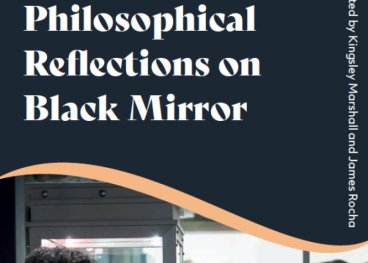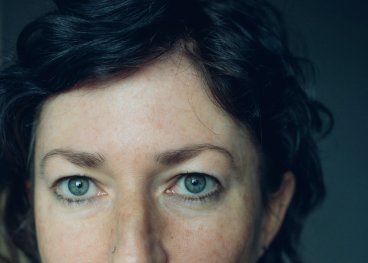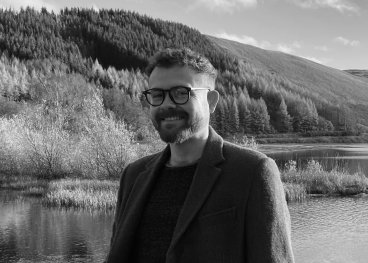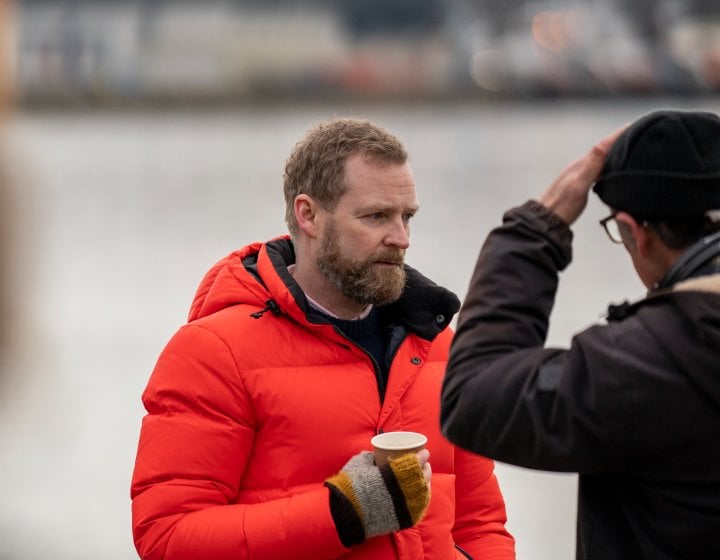Charismatic

An AI-based system to accelerate productivity in the Creative Industries
Charismatic is a powerful technology ecosystem that helps new and existing writers and producers generate and improve scripts, storylines and characters with ease. With its visualisation tool, users can bring their ideas to life and create stories that captivate their audiences.
Project details
| Project lead | Dr Kingsley Marshall |
|---|---|
| Start date | 1 April 2024 |
| End date | 31 March 2025 |
| Programme alignment | Sound/Image Cinema Lab |
| Website | charismatic.ai |
Charismatic is a research and development project supported by Innovate UK.
The UK-based consortium includes Oxford based AI company Charisma working with Falmouth University’s Sound/Image Cinema Lab, University of the Arts London’s Creative Computing Institute, Channel Four, Aardman Animations, Sound Reactions, and digital sociologist Lisa Talia Moretti.
A keystone of our research is working with screen partners to discover the potential of emergent technologies to aid and advance creative practice. A central theme of this project is the use of these technologies in assisting creatives in developing their work for the screen, and providing tools with which we can enable underrepresented groups through lowering the barriers to film and television production.
In terms of the potential for research and knowledge exchange, we’re interested in exploring and reporting on the changes to cultures of production that surround these technologies.
A keystone of our research is working with leading screen partners to discover the potential of emergent technologies to aid and advance creative practice. A central theme of this project is the use of these technologies in assisting creatives in developing work for the screen, and providing tools with which we can enable underrepresented groups to respond through lowering the barriers to film and television production. In terms of the potential for research and knowledge exchange, we’re interested in exploring and reporting on the changes to cultures of production that surround these technologies.
There are three key objectives of this project:
Broaden Access
Accelerate, improve and strengthen storytelling skills within underprivileged and disadvantaged communities
Bridge AI to the Creative Industries
Increase value within the creative industries with new creators and revenue streams
Create New Story Forms Across Multiple Media
Inspire a new mindset for storytelling that explores narrative design, characters and audience participation
The process to deliver the outcomes of this project will follow a research pathway agreed between UAL and Falmouth University. A key step is the provision of workshops that will engage new content creators from diverse backgrounds to provide a broad frame of reference, and continually test the project’s assumptions.
UAL and Falmouth have international reputations for creative technology and storytelling through the Creative Computing Institute and School of Film and Television’s Sound/Image Cinema Lab respectively. These two universities are working with Charismatic and our partners to research how to apply artificial intelligence to the story-writing and production processes.
Details around the practical research approach, and its technical application to the technology platform being worked on by Charismatic, are detailed below:
The research will be split into three streams: 1) Computational creativity focusing on prompting generative AI systems to generate compelling characters and story scripts; 2) The leveraging of existing intellectual property as inspiration and data sets to optimise these generative AI systems to improve the quality of the creative output; 3) New ways to describe story genres and tropes to accurately prompt generative AI systems, 4) Systems to generate audiovisual and experiential versions of the output scripts, and; 5) Optimal methods to transfer academic results from research organizations to industry and creative practitioners.
The research is cogent to the values of Falmouth University as an institution dedicated to values of inclusion, diversity and equality, and directly addresses the need for inclusive and diverse talent development in the UK film industry. Falmouth’s own film production and existing partnerships with production companies and the regional screen agency have positioned Cornwall as a centre of creative film and television production. The independent screen and commercial production sectors are thriving and fast moving, aided by recent changes to the UK tax relief for studios and indie films. The Charismatic R&D project serves as a flagship and marker of innovation for ongoing creative activity and partnerships with the Sound/Image Cinema Lab, and its place within the Falmouth University’s School of Film & Television and presents a great deal of potential to further reflect this in international research and knowledge exchange.
This project leverages emergent technologies to improve the efficiency and productivity within the creative industries, leading to increased AI adoption and diffusion within these industries. This will reduce cost barriers, skills gaps and ROI uncertainty for creators, and the project is situated within an ethical framework to encourage diverse audiences.
Our primary end user is the creator who is creating entertainment content. This could be both a new entrant to the creative industries who does not have access to funds or industry, and established creators seeking to enhance productivity and lower costs in the pre-production and previsualisation phase of their work.
Principal Investigator Dr Kingsley Marshall is the Head of the School of Film & Television at Falmouth, and the practice research lead within the Pedagogy Futures research centre, responsible for the dissemination of practice and traditional research outputs for screen media. This project aligns with both the Blended Realities and Pedagogy Futures research centres at Falmouth University.
The teaching, learning, research & innovation in Falmouth University’s School of Film & Television (SoFT) is orientated around contemporary film and television practices combined with a critical understanding of the history, present and future of screen-based media. Reflecting a fast moving sector, this is made relevant in terms of our partners and adaptability to guidance from these partners and accrediting bodies (including ScreenSkills, CILECT, NAHEMI, Albert, ARRI, and AVID), inclusive in terms of the teaching content and delivery, the people involved in front of and behind the camera, as well as the diverse and inclusive stories created and considered by these students, staff and our partners, and connected to the world in terms of relationships made manifest through our research, our curriculum, visiting speakers, placements, opportunity for study visits and through the wider schools with national and global partners.
Within the school, the Sound/Image Cinema Lab has a great deal of experience in framing professional screen making environment governed by the contexts of industrial practice within
a safe space for questions and questioning established modes practice – where social competence, self-compassion, empathy and understanding of others, and resilience is valued – and where assessment champions critical examination and reflection, and an attitude of failing forward by learning through doing.
We are driven to support diverse learners whose stories and scholarship are ambitious, and who aim to lead in roles that reflect or inspire social impact, following the principles of the 5As created by the TV Access Project as guidelines for inclusion in UK television production – Anticipate, Ask, Assess, Adjust, Advocate. We champion craft and scholarship that explores and engages with the world outside of the university and articulate new voices that are drivers for positive change. The ‘real world’ of creative practice that awaits our students is often focused on work with a socio-political consideration, with staff and students reflecting upon and presenting a critique of the global, colonial, exclusive, and often existential crises of our time, and our students have a history of challenging this, empowered by a curriculum that allowsthem to explore distinct and diverse voices.
Work from our students has directly represented or inferred the impact of climate change, COVID-19 and preceding global pandemics, terrorism, asymmetrical warfare and global migration, decolonial ideas, depicting underrepresented groups in front of and behind the camera in addition to considering the many challenges presented by technological and cultural change to democracy and the economics of late-capitalism globally. Common themes within our student’s work and staff practices include representations of the future and past, new and underrepresented voices, and the manner with which the recent pace of technological change has disrupted identity in gender and sexuality, race, mental and physical health, and class.
Key Stages
April-June 2024
- Establish parameters for the research. Incorporate commercial goals of audience reach and revenue into research goals.
- Start production on demonstrator project. Establish marketing and comms channels and publish project ‘diary’ from the production to grow social media reach.
- Functional/non-functional documentation produced.
June-August 2024
- Develop initial prototype version.
July-October 2024
- Approach appropriate digital publishers to explore co-marketing opportunities.
- Deliver workshops with partners
November 2024 – January 2025
- Launch Beta version to closed user group to build audience and test concepts.
- Write research paper ready for dissemination.
- Schedule event to release results of research paper and workshops.
January-March 2025
- Release of results, promotional video, press activation
Project team
A keystone of our research is working with leading screen academics, tech experts in their field and industry partners to discover the potential of emergent technologies to aid and advance creative practice

Dr Kingsley Marshall
Head of Film & Television
Dr Kingsley Marshall is Head of the CILECT and ScreenSkills accredited School of Film and Television...

Dr Rachael Jones
Research Associate
Rachael Jones is a filmmaker-researcher whose practice explores the use of tools and material object...

Scott Barley
Research Associate
Scott Barley is an artist-filmmaker based in Scotland. He has worked at Falmouth University as an As...
- Dr Kingsley Marshall (Principal Investigator)
- Dr Rachael Jones (Research Associate)
- Scott Barley (Research Associate)
Partners
- Channel 4
- Charismatic
- Creative Computing Institute, University of the Arts London
- Sound/Image Cinema Lab, Falmouth University
- University of the Arts London
- Aardman Animation

Funders
This project is funded by Innovate UK
Fund value: £1.02m
Outputs & outcomes
The summary deliverables will be:
- AI Strategy: A detailed practical framework for the ethical use of AI in the audiovisual creative industries, focusing on television, film and interactive storytelling. This informs and guides this project and provides a practical set of actionable approaches for the creative industries when implementing AI in their workflows and organisations.
- Workshops: Workshops and reports from target creators inform the ongoing Technical Approach throughout the project.
- The workshops aim to capture target market creator needs, inputs and requirements to inform the development of the project.
- Demonstrator: A demonstrator at a minimum of TRL-7 to show the end-to-end functioning of the user experience, and to enable a Creator to create a project and have it tested and valued by a Player. The demonstrator will be a computer-based application which is easy-to-use for Creators, and which will generate experiences that are found compelling by Players.
- Presentations: Presentations describing the research findings and impact on the creative industries. In addition to the AI Ethics work, a series of presentations will be generated for broader academic, industry and public consumption
Impact & recognition
This project targets the creator economy in the UK, and then internationally. The creator economy has been a driving force for job creation in the UK with approximately 25% of the UK population, or 16.5 million people, describing themselves as content creators (source: Adobe, Future of Creativity, 2022). However, most UK creators see creating content as separate to their primary employment, with 65% fully employed in other fields (source: Shopify). This market profile indicates that there is a market desire for creation, but the revenue streams have yet to appear to sustain this desire. Charismatic aims to tap into this passion and gap in the market and generate new revenue streams opportunities accelerated by AI.
The creator economy has transformed dynamics of the entertainment industry by enabling independent creators to reach audiences directly.
The global total addressable creator market is projected to double over the next five years to $480 billion by 2027 from $250 billion today. The number of global creators is expected to grow at a 10-20% CAGR during the same period. (Source: Goldman Sachs).
This has also led to increased investment in the sector, with a record $1.3 billion in funding in 2021 (source: CBInsights) which has fuelled the development of new technologies that enable creators to monetise their content more directly and earn a larger share of the overall revenue.
Wider project KPIs include:
- Knowledge transfer through at least four workshops with Aardman and Channel 4
- New data sets trained ethically and peer-reviewed with a focus on Creative Industries
- Recruitment of underrepresented and diverse creators to the platform
Project media
A new consortium plans to create an Artificial Intelligence prototype and publish new research into how AI could support under-represented content creators and established producers to enhance storytelling in film and television.
The Charismatic consortium - which has received £1.04million from the government’s Innovate UK programme – will research the opportunities for the creative industries to better leverage the potential of AI technologies. The project will explore how creators could use AI to generate new material such as storyboards, scenes and settings.
project news

Consortium secures £1.04m funding to explore AI-driven storytelling for TV & film industries
18 September 2024
A new consortium plans to create an Artificial Intelligence prototype and publish new research into ...

A new life awaits: my personal journey to AI | Dr Kingsley Marshall
18 September 2024
For so much of my life artificial intelligence has only ever been a feature of science fiction: ofte...